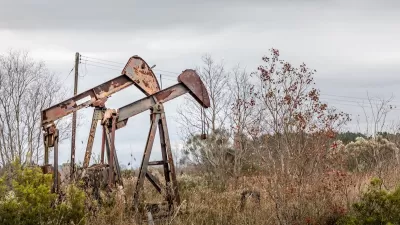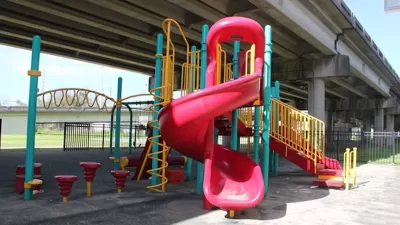EPA investigations into violations of the Civil Rights Act in Louisiana’s “Cancer Alley” were ruled as “federal overreach.”

A federal judge in Louisiana temporarily blocked federal investigations by the EPA and Department of Justice into whether the state’s Department of Environmental Quality (LDEQ) violated the disparate impact requirements of Title IV of the Civil Rights Act when it issued permits for petrochemical plants near Black communities in St. John the Baptist and St. James parishes. The area is located in what is known as “Cancer Alley,” a region with one of the highest cancer risks in the nation.
“Title VI prohibits recipients of federal funds from discriminating against state residents based on race and national origin, and allows residents to petition the EPA arguing that state agencies have intentionally discriminated or disparately impacted a particular community,” reports Julia Conley of Common Dreams.
Louisiana Governor Jeff Landry, state attorney at the time, filed a lawsuit against the EPA last June, arguing the investigation exceeded statutory authority. In his ruling, Judge James D. Cain, U.S. District Court for the Western District of Louisiana, said Title VI requirements constitute “federal overreach” and “pollution does not discriminate.”
The decision is a further blow to advocates and local residents. A few weeks after the lawsuit was filed last summer, the EPA announced it was ending a separate investigation, stating they didn’t find evidence to support claims that the LDEQ intentionally placed disproportionate pollution burdens on Black residents in Cancer Alley.
According to BloombergLaw, allowing disparate impacts in a case—defined as adverse impacts on a protected group resulting from systems, practices, policies, or rules that appear to be neutral—can be easier to prove than intentional discrimination in some environmental justice cases.
"Instead of fixing the discriminatory permitting programs that have created sacrifice zones like Cancer Alley, Louisiana is fighting tooth and nail to keep them in place," Sam Sankar, senior vice president of programs for Earthjustice, said in a statement. "The public health crisis in St. John the Baptist Parish shows us why we need Title VI: EPA needs to be able to use our civil rights laws to stop states from running permitting programs that perpetuate environmental injustice."
FULL STORY: 'Major Blow': Trump-Appointed Judge Bars EPA From Enforcing Civil Rights Protections

Study: Maui’s Plan to Convert Vacation Rentals to Long-Term Housing Could Cause Nearly $1 Billion Economic Loss
The plan would reduce visitor accommodation by 25,% resulting in 1,900 jobs lost.

North Texas Transit Leaders Tout Benefits of TOD for Growing Region
At a summit focused on transit-oriented development, policymakers discussed how North Texas’ expanded light rail system can serve as a tool for economic growth.

Why Should We Subsidize Public Transportation?
Many public transit agencies face financial stress due to rising costs, declining fare revenue, and declining subsidies. Transit advocates must provide a strong business case for increasing public transit funding.

How to Make US Trains Faster
Changes to boarding platforms and a switch to electric trains could improve U.S. passenger rail service without the added cost of high-speed rail.

Columbia’s Revitalized ‘Loop’ Is a Hub for Local Entrepreneurs
A focus on small businesses is helping a commercial corridor in Columbia, Missouri thrive.

Invasive Insect Threatens Minnesota’s Ash Forests
The Emerald Ash Borer is a rapidly spreading invasive pest threatening Minnesota’s ash trees, and homeowners are encouraged to plant diverse replacement species, avoid moving ash firewood, and monitor for signs of infestation.
Urban Design for Planners 1: Software Tools
This six-course series explores essential urban design concepts using open source software and equips planners with the tools they need to participate fully in the urban design process.
Planning for Universal Design
Learn the tools for implementing Universal Design in planning regulations.
City of Santa Clarita
Ascent Environmental
Institute for Housing and Urban Development Studies (IHS)
City of Grandview
Harvard GSD Executive Education
Toledo-Lucas County Plan Commissions
Salt Lake City
NYU Wagner Graduate School of Public Service





























